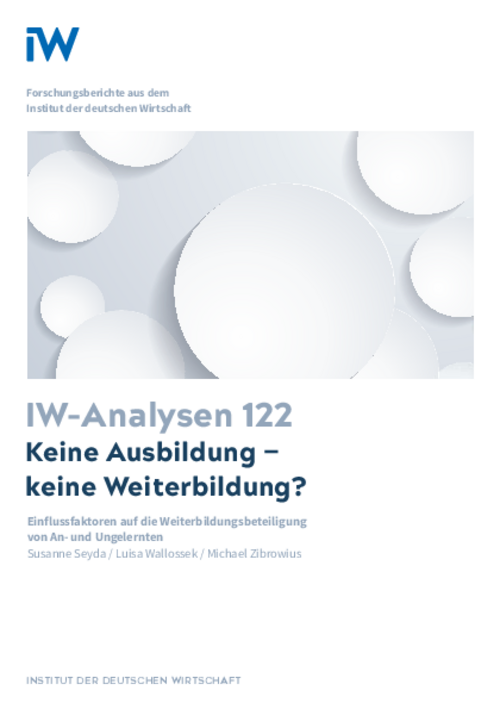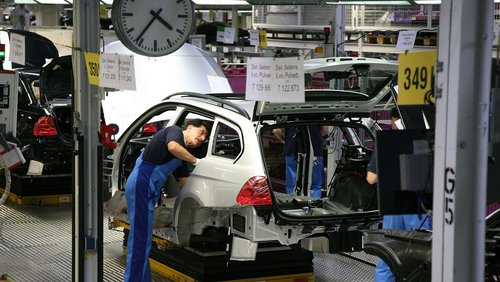The present analysis examines the factors influencing the participation of workers with no formal qualifications in further training. Within this group, there has been an increase in the proportion of menial jobs, which correlates negatively with the probability of undergoing further training.

No Vocational Training – no Continuing Vocational Education?: Factors influencing the Participation of Workers with no formal Qualifications in further Training

The present analysis examines the factors influencing the participation of workers with no formal qualifications in further training. Within this group, there has been an increase in the proportion of menial jobs, which correlates negatively with the probability of undergoing further training.
Picking up on this finding and using theoretically-derived further training motives, the extent to which the job requirements, the working conditions and changes in the work environment influence the probability of an individual taking part in further training is empirically tested. The results reveal that the sharply increased participation in further training over time is due in particular to changing job requirements and changes in the working environment, with the combined effect proving strong enough to compensate for the growing share of menial jobs. However, overall participation in further training by semi- and unskilled workers still lags behind the level of those with a vocational training, advanced further training or tertiary qualification. The best approaches to upskilling the low-qualified are systematic individual support and establishing and developing a learner-friendly work environment that mitigates any aversion to learning and makes the benefits of further training immediately apparent.

No Vocational Training – no Continuing Vocational Education?: Factors influencing the Participation of Workers with no formal Qualifications in further Training

More on the topic

Further training needs of the automotive industry in transformation
Due to the ecological and digital transformation, significant parts of the German economy, particularly the industrial sector, are currently undergoing a transformation. This development also extends to the automotive sector, which occupies a vital position in ...
IW
The Increasing Importance of Literacy Courses and Further Training for the Low-skilled
Digitalisation and the demographic transition are presenting companies with ever new challenges. This puts pressure on firms to be in a process of constant change, a phenomenon reflected in the growing demands they put on their low-skilled employees.
IW